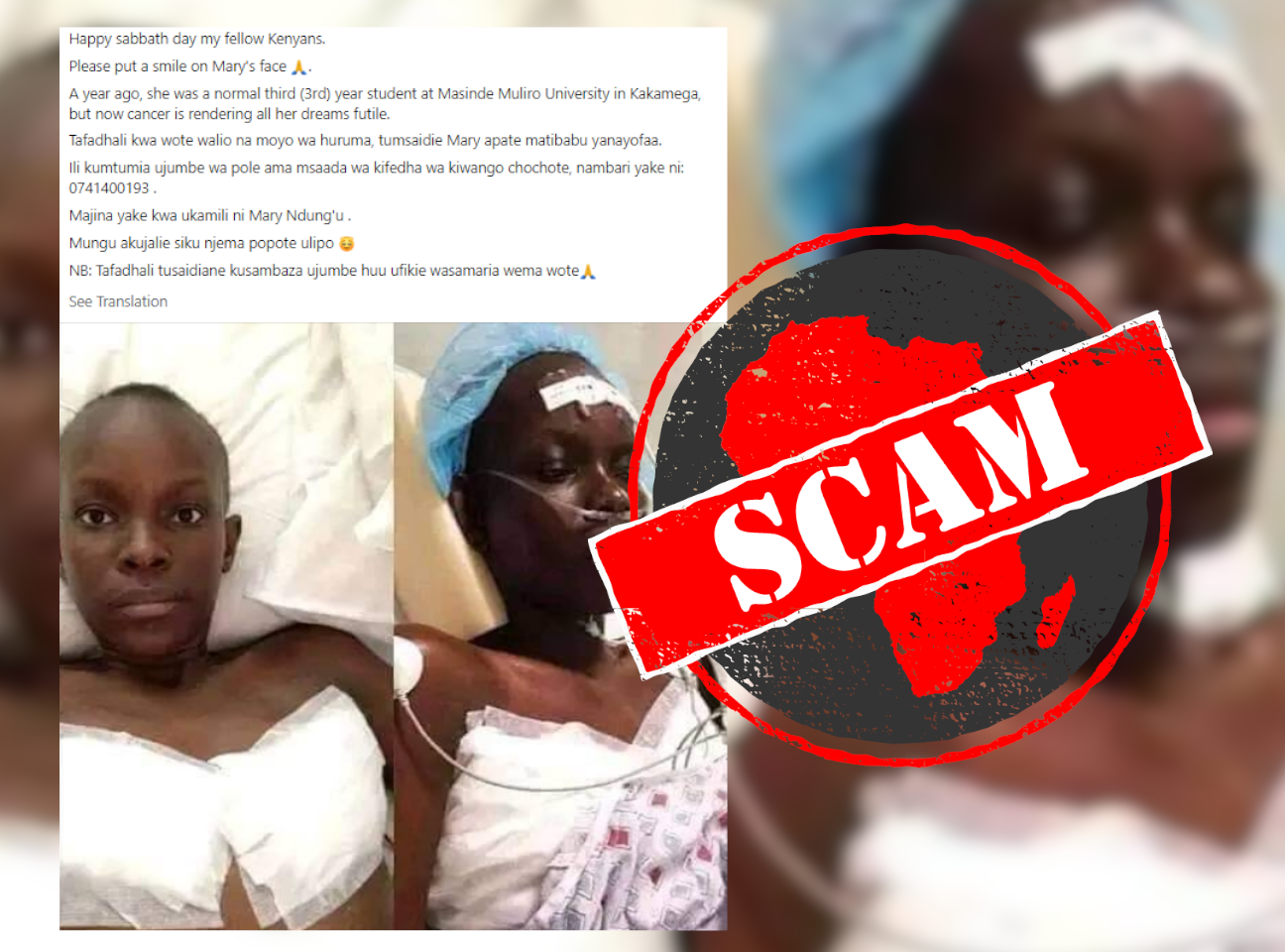Two photos of a woman in a hospital bed, her upper body covered with surgical dressings and tubes, are circulating on Facebook with the claim that she is a Kenyan university student with cancer who needs donations for treatment.
The photos’ captions are always the same, although her name varies between Mary Ndung’u and Mellen Obonyo.
“A year ago, she was a normal third (3rd) year student at Masinde Muliro University in Kakamega, but now cancer is rendering all her dreams futile,” reads a typical caption.
The Masinde Muliro University of Science and Technology is in western Kenya.
“Tafadhali kwa wote walio na moyo wa huruma, tumsaidie Mary apate matibabu yanayofaa,” it adds in Kiswahili. This roughly translates as: “Please, for all those with compassionate hearts, let’s help Mary get the right treatment.”
Facebook users are urged to send their contributions to “her” mobile money number, which is provided, and to share the message to reach “all good Samaritans.”
It has been shared here, here, here and here.
But is this cry for help authentic? We checked.

Photos from 2013
The fact that different posts give the woman different names, and that the mobile number also differs, makes the posts suspicious.
Reverse image searches of the photos led us to several news articles about a Nigerian cancer patient named Debbie Osarere Idiagbonya.
According to the Will, an online news outlet, Osarere was diagnosed with breast cancer in 2011. The disease later spread to other parts of her body.
She died in 2016 in the US, where she had gone for treatment. Some of her photos, including the ones used in the Facebook messages, appear on an Instagram account that posted updates on her treatment and now memorialises her. The photos on Facebook are from 2013.
The plea for help is a scam. The photos don’t show a Kenyan student with cancer.
Republish our content for free
For publishers: what to do if your post is rated false
A fact-checker has rated your Facebook or Instagram post as “false”, “altered”, “partly false” or “missing context”. This could have serious consequences. What do you do?
Click on our guide for the steps you should follow.
Publishers guideAfrica Check teams up with Facebook
Africa Check is a partner in Meta's third-party fact-checking programme to help stop the spread of false information on social media.
The content we rate as “false” will be downgraded on Facebook and Instagram. This means fewer people will see it.
You can also help identify false information on Facebook. This guide explains how.


Add new comment